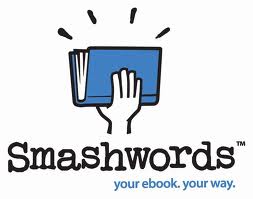Smashwords, Mark Coker On How to Sell More e-Books
Biff Barnes
Mark Coker, founder of the Smashwords indie e-book self-publishing platform, speaking at the RT Booklovers Convention in Kansas City earlier this month, offered some valuable advice for authors who want to increase e-book sales.

Coker summarized his remarks, which are based on an analysis of indie e-book sales data, on the Smashwords website in a post titled New Smashwords Survey Helps Authors Sell More e-Books .
Coker advises authors to “…imagine dozens of levers and dials attached to your book that you can twist, turn and tweak. When you get everything just right, your book's sales will increase … through word-of-mouth. … I refer to these tweakable things as Viral Catalysts. A Viral Catalyst is anything that makes your book more available, accessible, discoverable, desirable or enjoyable to readers.”
He examines six of these potential viral catalysts. We’ll summarize what he had to say, but the Smashwords post has all the data and graphs to illustrate exactly what it shows.
1. e-Book Sales Conform to a Power Curve
- Most books don't sell well, but those that do sell well sell really well. This finding wasn't a surprise. Just as in traditional publishing, very few books become bestsellers.
2. Viva Long Form Reading: Longer Books Sell Better
- The top 100 bestselling Smashwords books averaged 115,000 words. When we examined the word counts of books in other sales rank bands, we found the lower the word count, the lower the sales.
3. Shorter Book Titles Appear to Have Slight Sales Advantage
- We looked at character count, which indicated slight advantage for shorter titles, and then we looked at word count, where the advantage appeared to be more pronounced.
- The top 100 bestselling Smashwords books averaged 4.2 words in their book title.
4. How Indie Authors are Pricing Their Books: $2.99 is the Most Common Price Point
- The most popular price points are FREE through 2.99.
- They chose $2.99 more frequently than any other price point. In last year's survey, $.99 was a more common price point than $2.99. In this year's survey, $2.99 was about 60% more often.
5. How Price Impacts Unit Sales Volume: Lower Priced Books (usually) Sell More Copies
- As you might expect, we found there's a definite relation between price and unit sales volume. Lower prices generally sell more copies than higher prices. But not always.
- …books priced between $1.00 and $1.99 significantly underperform books priced at $2.99 and $3.99. $1.99 appears to be a black hole.
- If you've written several books, consider pricing at least one of the books at free. If you write series, consider pricing the series starter at FREE. Nothing attracts reader interest like FREE.
6. The Yield Graph: Is $3.99 the New $2.99?
- …books priced at $3.99 will earn about 55% more than the average book at any price. Books priced at $1.99 are likely to earn 67% less than the average.
- One surprising finding is that, on average, $3.99 books sold more units than $2.99 books, and more units than any other price except FREE.
As interesting as the data Coker presents is, it is offered here with a big caveat. Be aware that the numbers apply mostly to adult genre fiction books. It’s important to understand that if your book is non-fiction. So let’s add one more thing that e-book authors should know.
7. The Above Don’t Necessarily Apply to Nonfiction E-Books
- Sourcebooks, in a post titled E-Books: How Far How Fast? Reviewed the Bookscan data and found that Adult Nonfiction is 42.3% of the market for physical books, but accounts for less than 25% of e-books sold. The post reported that nonfiction accounts for approximately 20% of the bestsellers among e-books. “Looking at BN Nookbook top 100 bestsellers, there were 12 non-fiction ebooks on the list. On the Kindle top 100 bestsellers (paid), there were 16 non-fiction titles.”
- Book Buzzr, was more pointed in its post When Will the eBook Expressway Explode Sales for Nonfiction – as It Has for Fiction? Comparing the e-book success of fiction and nonfiction authors, it said, “Exactly zero nonfiction authors have seen eBook sales that are comparable to the sales that these genre fiction authors have attracted.”
Regardless of whether your book is fiction or nonfiction Coker has given authors something to think about.
If you have published an e-book leave a comment and tell us about your experiences.